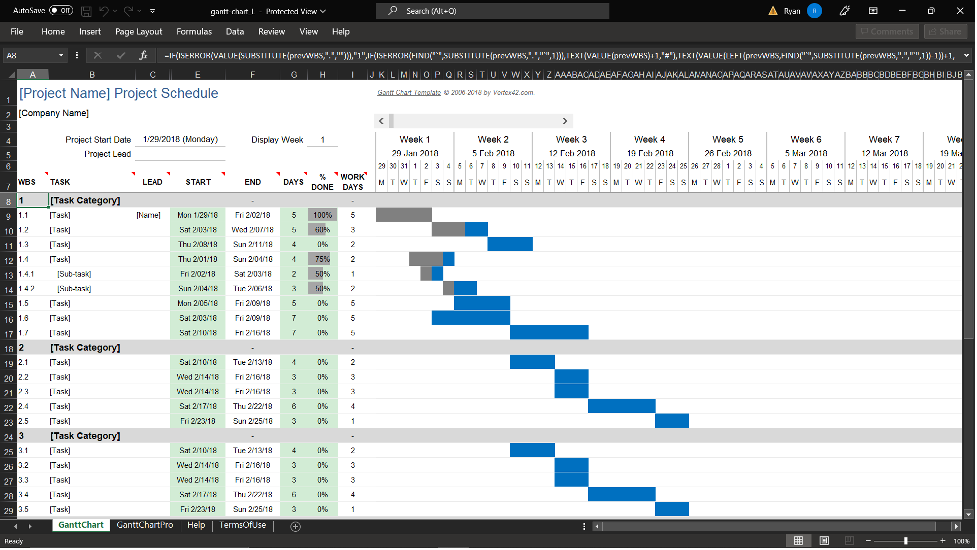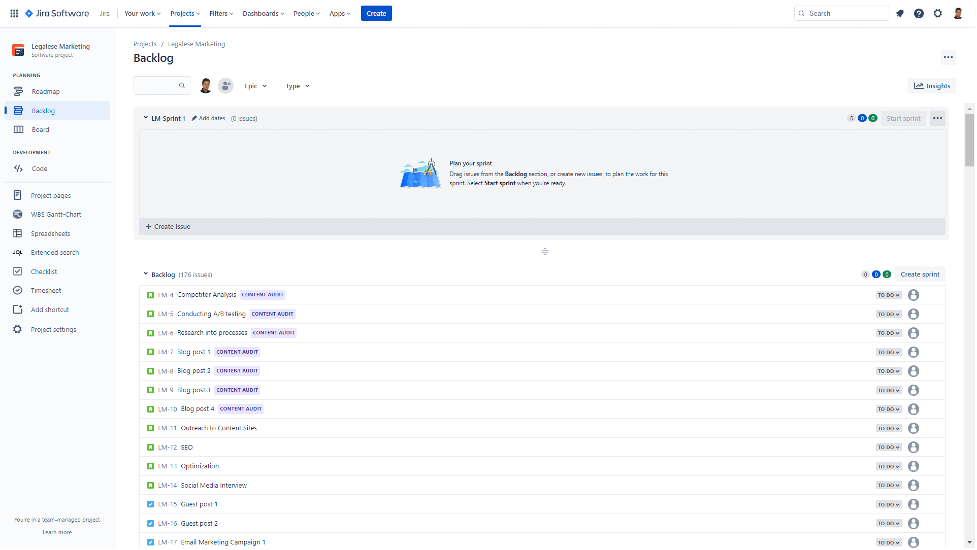A good piece of project management software is worth its weight in gold. It can make everything a little easier. From helping PMs stay connected with their teams to generating notifications for urgent matters, when used properly, software can boost overall productivity.
Unsurprisingly, a handful of leading solutions in recent years have emerged as the go-to choice for PMs. In particular, Excel, Confluence, and Jira stand out, especially for Agile teams. But are they as good as you might assume?
The Case for Excel
To PMs and Agile teams worldwide, the name Excel is a familiar one. Today, there are well over 750 million Excel users across the globe, dispersed across numerous fields from engineering to finance. Created by Microsoft, Excel has now become synonymous with any type of work that uses spreadsheets.

It wouldn’t be a stretch to say that everybody recognizes Excel.)
This ubiquity isn’t without good reason. Excel has become a staple for those working with data thanks to its wide-ranging functionalities. This includes its ability to create lengthy spreadsheets, its thousands of in-built formulas capable of handling complex data analysis, and its vast array of data visualization capabilities.
That said, Excel falls short for Agile teams and PMs. Though affordable and capable, in digital-first environments where efficiency is king, relying solely on Excel for project management is detrimental. Updating projects requires users to manually access and save the latest version of a file, reports have to be laboriously generated, and vital collaboration functions like chats and file sharing cannot be done.
In short, Excel wasn’t specifically designed for the PM, so surely the grass must be greener on the other side?
The Case for Jira and Confluence
Enter Jira and Confluence. Trusted by over 65,000 companies globally and created by Atlassian, it offers the perfect, comprehensive solution for PMs for all stages of a project from initiation to closure.

Jira was clearly designed for project management, unlike Excel.
Best of all, unlike Excel, PMs can also rest easy knowing that everything was catered for project management in mind. Confluence can be used as a knowledge-sharing platform to share ideas, charts, and documents both within and beyond the team. Simultaneously, Jira can be finetuned for any project, offering PMs the power to track issues, customize workflows, lay out roadmaps, and set permissions accordingly.
But like Excel, they aren’t without flaws right out of the box. The duo lacks one key function: allowing users to manipulate, analyze, and visualize data beyond the narrow parameters offered by Jira and Confluence.
This causes many to resort to switching back and forth between Excel, Jira, and Confluence. While this seems acceptable on paper, it can lead to concerning problems.
The Issues
The ping pong between the three solutions is more problematic than what you’d initially assume. It can cause concerning short and long-term issues such as:
Inconvenience
Shifting between apps may seem doable on a daily basis but when you consider the long-term picture, that time adds up. It can be incredibly time-consuming, taking away time that could otherwise be better spent on more value-adding work.
Ironically, the very software you invested in to make work more productive will start to do exactly what it was not intended to do.
Inconsistency
On top of being a productivity killer, using multiple different apps simultaneously also increases the risk of human error and can diminish a project’s single source of truth (SSOT), the practice of ensuring that the latest knowledge can be found in a single location. A study by Asana in 2021 found that in teams that switched between apps, up to 24% of work was unintentionally duplicated while 27% of work-related messages were overlooked.
An SSOT is crucial in ensuring that everyone in a team knows exactly what they and others are currently working on as it establishes both transparency and clarity. But without this, disruption becomes the norm.
Frustration
All these issues combined create problems that (unsurprisingly) foster a more stressful work environment. With app switching causing more problems than it’s worth, with more frequent errors, duplicate work, and time-wasting, the idiom “too many chefs spoil the soup” holds true.
Software is meant to make life easier. But when bombarded with too much, it makes everything more stressful.
Why Unite Excel with Confluence and Jira
So, for PMs wanting to take their experience to the next level, the next step is clear. They’ll need to somehow unite both sides and access Excel-like functions within Confluence and Jira to bring out the best of both worlds. Achieving this union can enable PMs to do the following:
Data Visualization and Analytics
Bringing the power of Excel to the Atlassian ecosystem is a big deal and cannot be overemphasized. The lack of strong data manipulation tools has always been an unfulfilled desire for many Jira and Confluence users and bridging this gap may turn the duo into one of the most powerful solutions currently in the market.
With the support of Excel’s toolkit in Jira and Confluence, PMs will have now the newfound ability to conduct complex analyses with the help of formulae such as SUM and Bitwise. They’ll even be able to create Gantt charts and elaborate tables without ever needing to switch to another, external app.
Reduces Risks
By eliminating the need to jump around Confluence, Jira, and Excel, any issues associated with switching between apps are minimized. This includes both duplicate efforts and human error (e.g. misunderstandings).
Additionally, an SSOT can now be properly established. Team members will be able to freely edit Excel-like spreadsheets and charts on Jira and Confluence and once done, can heave a sigh of relief, knowing that the changes they made will be immediately saved and reflected for everyone.
Enhances Security
Eliminating the need to switch between apps also helps better secure sensitive data. This is especially the case for teams dealing with sensitive data (e.g. health records, financial information) and is crucial for anyone concerned with maintaining their brand image.
By accessing Excel within Confluence or Jira, any associated data will also be stored within the Atlassian ecosystem which is known as being extremely secure. This also reduces the number of places where data is stored, helping minimize the number of possible exploitable access points for a data breach.
The Solution
Bridging Excel with the duo is more straightforward than what you’d expect. Ricksoft in particular has recognized the importance of this issue and has crafted a specific solution for PMs: the Excel-like Suite.
Split into three unique solutions, each app was designed to solve a particular set of problems.

The suite brings Excel’s power to any Confluence or Jira doorstep.
Excel-like Tables for Confluence arms PMs and Confluence admins with powerful Excel-like functions from filters to CQL searchability, transforming their spaces into something more than a simple file and knowledge-sharing platform.
Excel-like Issue Editor for Jira helps PMs tackle thousands of different issues all at the same time. With the ability to bulk edit combined with the capability to sort, filter, freeze, and more, PMs can now harness the power of Excel to take the reins of any project, regardless of complexity.
Excel-like Tables for Jira, similar to its sibling solution, brings Excel tables to Jira’s doorstep. Conducting data analysis, charting graphs, and utilizing pivot tables – all this can now be done without the hassle of switching to another application.
Your Next Move
A good PM is a PM who constantly seeks to improve both themselves and how they approach managing a project. Supercharging Jira and Confluence with the power of Excel is a sure way to do so.
Of course, what we’ve mentioned about Ricksoft’s solution only scratches the surface of what’s possible. To dive deeper into what’s possible, check out Ricksoft’s vast variety of free resources!